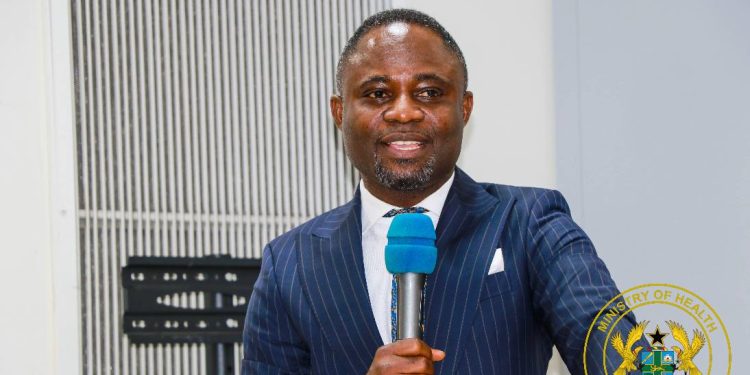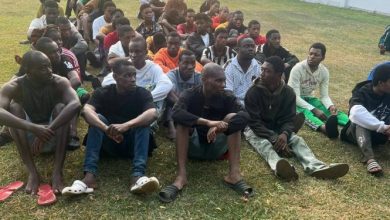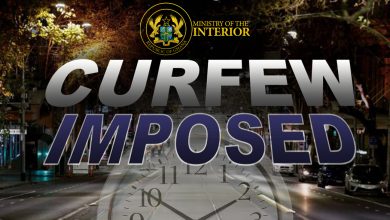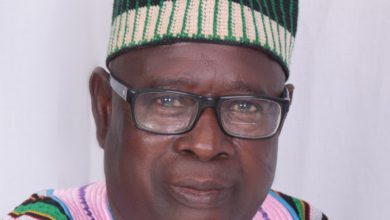No Ghanaian medical data stored abroad – Lightwave tells Minister of Health

Lightwave E-Healthcare Solutions Limited has rejected what it describes as “false and misleading” claims made by the Minister of Health, Kwabena Mintah Akandoh, regarding the management of Ghana’s National E-Healthcare Programme and the Lightwave Health Information Management System (LHIMS).
In a statement released in Accra, the fully Ghanaian-owned technology firm stated that the Minister’s recent comments—made in Parliament on October 28 and later at the Presidential Accountability Series on October 29—suggesting that Ghana’s medical data was controlled from India, were not just incorrect but could harm public confidence in the country’s digital health achievements.
Lightwave stressed that all healthcare data generated through LHIMS is stored on the Ministry of Health’s own servers at its headquarters in Accra. The company clarified that its role is limited to providing licensed software for data management, while the government retains full ownership and control of all records.
“The healthcare data of Ghanaians is the property of the Government of Ghana and is stored within the Ministry of Health’s servers in Accra,” the statement said, calling the Minister’s remarks “false and unfortunate.”
The company felt it necessary to respond publicly to stop misinformation from damaging trust in a system that has been developed and implemented since 2016.
Lightwave detailed the project’s history, starting with Phase One in 2016 under former President John Dramani Mahama, which cost US$6 million and connected 23 health facilities in the Central Region.
Following this success, the Ministry of Health signed a second contract in March 2019 valued at US$100 million to expand the system to 950 facilities across the country. The company explained that the contract price was not spread evenly across all facilities but was weighted based on the complexity of each type of institution.
Teaching and regional hospitals required much larger investments, while health centres needed less infrastructure. For instance, the four teaching hospitals alone accounted for 21 per cent of the contract cost, while all 646 health centres together made up only 17 per cent.
By December 2024, Lightwave had installed systems in all four teaching hospitals, six regional hospitals, and 243 district and other hospitals—totalling 72 per cent of the contract value and justifying the US$77 million (77 per cent) disbursed by the Ministry.
Lightwave attributed project delays to constant payment delays and administrative hurdles. While payments were supposed to be made within 36 days of invoice submission, the company often waited between five and twenty months, creating significant financial pressure. COVID-19 further affected rollout plans.
Training sessions had to be reduced, facility space was limited, and global supply chain issues led to unpredictable delays in equipment delivery. Ghana’s temporary port closures added to the delays. Although the Ghana Health Service provided a prioritised facility list in 2023, Lightwave noted that a 12-month contract extension was delayed for nearly six months because the revised rollout list was not sent out on time.
Despite these challenges, the company continued to provide support services even after the contract officially expired on December 31, 2024, without renewal and without payment for additional work done throughout 2025. Lightwave also rejected claims that it supplied poor-quality or insufficient hardware.
The company stated that all equipment met or exceeded contractual standards, and any changes were approved under the contract’s “substantial equivalence” clause.
No facility or the Ministry reported issues with the hardware. In response to a claim about laptop shortages, Lightwave clarified that the contract required 9,544 laptops—not 13,172—and that 7,060 had already been delivered, with the rest set for facilities yet to be rolled out.
The company also referenced a meeting in September 2025 where the Minister instructed Lightwave to submit invoices for eight months of outstanding payments—contradicting his public statement that there were no arrears.
Through its solicitors, Messrs Lord & Lords Legal Practice, Lightwave has requested arbitration and copies of all investigation reports related to the LHIMS project. The company believes this is essential for protecting patient data and ensuring the continuity of e-health services across the country.
Reaffirming its commitment to Ghana’s digital health transformation, Lightwave called for a fair, evidence-based review of the National E-Healthcare Programme—one free from political rhetoric and data misinterpretation.










